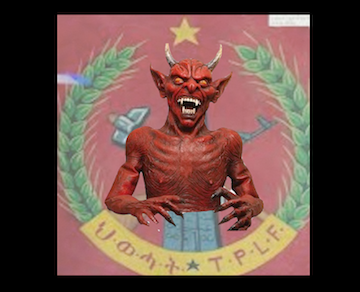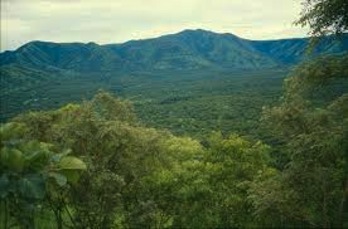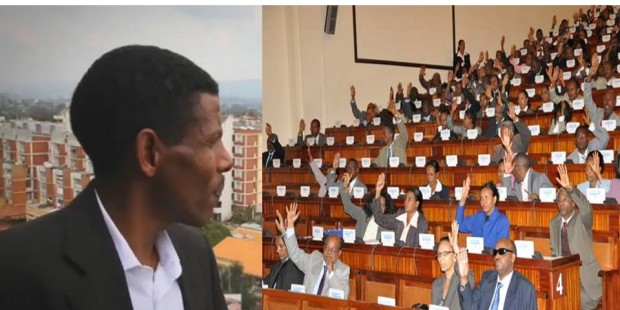To many people land is much more than a resource or corporate commodity to be bought, developed and sold for a profit. Identity, cultural history and livelihood are all connected to ‘place’. The erosion of traditional values and morality (which include the observation of human rights and environmental responsibility) are some of the many negative effects of the global neo-liberal economic model, with its focus on short-term gain and material benefit. The commercialisation of everything and everybody has become the destructive goal of multi-nationals, and their corporate governments manically driven by the desire for perpetual growth as the elixir to life’s problems.
Land for Profit
Since the food crisis in 2008 agricultural land in developing countries has been in high demand. Seen as a sound financial investment by foreign brokers and agrochemical firms, and as a way to create food security for their home market by corporations from Asia and the Middle East in particular.
Three quarters of worldwide land acquisitions have taken place in Sub-Saharan Africa, where poverty ridden and economically vulnerable countries (many run by governments with poor human rights records) are ‘encouraged’ to attract foreign investment by donor partners and their international guides. The World Bank, International Monetary Fund (IMF) and donor partners, powerful institutions that by “supporting the creation of investment-friendly climates and land markets in developing countries” have been a driving force behind the global rush for agricultural land, the Oakland Institute (OI) report in Unheard Voices (UV).
Poor countries make easy pickings for multi-nationals negotiating deals for prime land at giveaway prices and with all manner of government sweeteners. Contracts sealed without consultation with local people, which lack transparency and accountability, have virtually no benefit for the ‘host’ country (certainly none for indigenous groups), and as Oxfam make clear “have resulted in dispossession, deception, violation of human rights and destruction of livelihoods.”
Ethiopia is a prime target for investors looking to acquire agricultural land. Since 2008 The Ethiopian People’s Revolutionary Democratic Front (EPRDF) government has leased almost 4 million hectares, for commercial farm ventures. Land is cheap – they are virtually giving it away, tax is non-existent and profits (like the food grown) are smoothly repatriated. Local people are swept aside by a government unconcerned with human rights and the observation of federal, or international, law. A perfect environment then, where shady deals can be done and large corporate profits made. In their desperation to be seen as one of the ‘growth gang’ and “to make way for agricultural land investments”, the Ethiopian government has “committed egregious human rights abuses, in direct violation of international law,” OI state.
Forced From Home
Bordering South Sudan the fertile Gambella region (where 42% of land is available), with its lush vegetation and flowing rivers, is where the majority of land sales in the country have taken place. Deals in the region are made possible by the EPRDF’s ‘villagisation programme’. This is forcibly clearing indigenous people off ancestral land and herding them into State created villages. The plan has been intensely criticised by human rights groups, and rightly so – 1.5 million people nationwide are destined to be re-settled, 225,000 (over three years) from Gambella.
More concerned to be seen as corporate buddy than guardian of the people, the Ethiopian government guarantees investors that it will clear land leased of everything and everyone. It has an obligation, OI says, to “deliver and hand over the vacant possession of leased land free of impediments”, swept clear of people, villages, forests and wildlife, and fully plumbed into local water supplies. Bulldozers are destroying the “farms, and grazing lands that have sustained Anuak, Mezenger, Nuer, Opo, and Komo peoples for centuries”, Cultural Survival (CS records: and dissent, should it occur, is brutally dealt with by the government, that promises to “provide free security against any riot, disturbance or any turbulent time.” (OI) ‘Since you do not accept what government says, we jail you.’” The elder told from Batpul village told Human Rights Watch (HRW). He was jailed without charge in Abobo, and held for more than two weeks, during which time “they turned me upside down, tied my legs to a pole, and beat me every day for 17 days until I was released.”
Hundreds of thousands of villagers, including pastoralists and indigenous people are being forcibly moved by the regime, HRW reports, they are “relocating them through violence and intimidation, and often without essential services”, such as education (denying children ‘the right to education’), water, and health care facilities – public services promised to the people and championed to donor countries by the government in their programme rhetoric.
Murder, rape, false imprisonment and torture are (reportedly) being committed by the Ethiopian military as they implement the federal governments policy of land clearance and re-settlement in accordance with its ‘villagisation programme’. ”My village was forced by the government to move to the new location against our will. I refused and was beaten and lost my two upper teeth”. This Anuak man told the NGO Inclusive Development International (IDI), His brother “was beaten to death by the soldiers for refusing to go to the new village. My second brother was detained and I don’t know where he was taken by the soldiers”.
To the Anuak People, who are the majority tribal group in the affected areas, their land is who they are. It’s where the material to build their homes is found it’s their source of traditional medicines and food. It’s where their ancestors are buried and where their history rests. By driving these people off their land and into large settlements or camps, the government is not only destroying their homes, in which they have lived for generations, it is stealing their identity. Indigenous people tell of violent intimidation, beatings, arbitrary arrest and detention, torture in military custody, rape and extra-judicial killing. State criminality breaching a range of international and indeed federal laws, that Genocide Watch (GW) consider “to have already reached Stage 7 (of 8), genocide massacres”, against the Anuak, as well as the people of Oromia, Omo and the Ogaden region.
The Ethiopian government is legally bound to obtain the ‘free, informed and prior consent’ of the indigenous people it plans to move. Far from obtaining consent, Niykaw Ochalla in Unheard Voices, states that, “when [the government] comes to take their land, it is without their knowledge, and in fact [the government] says that they no longer belonged to this land, [even though] the Anuak have owned it for generations”. Consultation, consent and compensation the ‘three c’s required by federal and international law. Constitutional duties and legal requirements, which like a raft of other human rights obligations the regime dutifully ignores. Nyikaw Ochalla confirms that “there is “no consultation at all”, sometimes people are warned they have to move, but just as often OI found the military “instruct people to get up and move the same day”. And individuals receive no compensation “for their loss of livelihood and land.“ In extensive research The Oakland Institute “did not find any instances of government compensation being paid to indigenous populations evicted from their lands”, this despite binding legal requirements to do so.
‘Waiting here for death’
The picture of state intimidation in Gambella is a familiar one. Refugees in Dadaab, Kenya, from the Ogaden region of Ethiopia, recount stories of the same type of abuse, indeed as do people from Oromia and the Lower Omo valley. Tried and tested Government methodology used to enforce repressive measures and create fear amongst the people. “The first mission for all the military and the Liyuu is to make the people of the Ogaden region afraid of us”, a former commander of the Liyuu police told me. And to achieve this crushing end, they are told “to rape and kill, to loot, to burn their homes, and capture their animals”. From a wealth of information collated by HRW and the OI, it is clear that the Ethiopian military in Gambella is following the same criminal script as their compatriots in the Ogaden region.
We were at home on our farm, a 17-year-old girl from Abobo in Gambella (whose story echoes many), told HRW “when soldiers came up to us: ‘Do you accept to be relocated or not?’ ‘No.’ So they grabbed some of us. ‘Do you want to go now?’ ‘No.’ Then they shot my father and killed him”, a villager from Gooshini, now in exile in South Sudan, described how those in his settlement “that resisted…. were forced by soldiers to roll around in the mud in a stagnant water pool then beaten”.
The new settlements that make up the villagisation programme, are built on land that is “typically dry and arid”, completely unsuitable for farming and miles from water supplies, which are reserved for the industrial farms being constructed on fertile ancestral land. The result is increased food insecurity leading in some cases to starvation. HRW documented cases of people being forced off their land during the “harvest season, preventing them from harvesting their crops”. With such levels of cruelty and inhumanity the people feel desperate, “as one displaced individual told Human Rights Watch, “The government is killing our people through starvation and hunger . . . we are just waiting here for death”.
And should families try to leave the new settlement (something they are discouraged from doing), and return to their village homes, the government destroys them totally, burning houses and bulldozing the land. “The government brought the Anuak people here to die. They brought us no food, they gave away our land to the foreigners so we can’t even move back,” HRW record in ‘Waiting Here for Death’. People forced into the new villages are fearful of government assault, parents “are afraid to send their children to school because of the increased army presence. Parents worry that their children will be assaulted”. (UV)
In the face of such government atrocities the people feel powerless; but like many suffering injustice throughout the world, they are awakening demanding justice and the observation of fundamental human rights. “We don’t have any means of retrieving our land” Mr.O from the village of Pinykew in Gambella, told The Guardian (22/01/2013). “Villagers have been butchered, falsely arrested and tortured, the women subjected to mass rape”. Enraged by such atrocities, he is bringing what could be a landmark legal case against Britain’s Department for International Development (DfiD). Leigh Day & Co, solicitors based in London, have taken the case, “arguing that money from DfiD is funding the villagisation programme”, that “breaches the department’s own human rights policies.” DfiD administer the £324 million given by the British government to Ethiopia, making it the biggest recipient of aid from the country. They deny supporting forced re-location, but their own documents reveal British funds are paying the salaries “of officials implementing the programme and for infrastructure in new villages”, The Daily Mail 25/05/2013 reports. Allegations reinforced by HRW, who state that “British aid is having an enormous, negative side effect – and that is the forcible ending of these indigenous people’s way of life”. (Ibid)
In an account that rings with familiarity, Mr.O, now in Dadaab refugee camp, says he was forced from his village at gunpoint by the military. At first he refused to leave, so “soldiers from the Ethiopian National Defence Force (ENDF) beat me with guns.” He was arrested, imprisoned in military barracks and tortured for three days, after which time he was taken to the new village, which “did not have water, food or productive fields”, where he was forced to build his house.
Government Duplicity, Donor Complicity
The government unsurprisingly denies all allegations of widespread human rights abuse connected with land deals and the ‘villagisation programme’ specifically. They continue to espouse the ‘promised public service and infrastructure benefits’ of the scheme that “by and large” OI assert, “have failed to materialise”. The regime is content to ignore documentation provided by human rights groups and NGOs and until recently had refused to cooperate with an investigation by the World Bank into allegations of abuse raised by indigenous Anuak people. The Bank incidentally that gives Ethiopia more financial aid than any other developing country, $920 million last year alone. Former regional president Omod Obang Olum oversaw the plan in Gambella and assures us resettlement is “voluntary” and “the programme successful”. Predictable duplicitous comments that IDI said “are laughable”.
An independent non-profit group working to advance human rights in development, IDI, has helped the Anuak people from Gambella “submit a complaint to the World Bank Inspection Panel implicating the Bank in grave human rights abuses perpetrated by the Ethiopian Government“. The complaint alleges, “that the Anuak people have been severely harmed by the World Bank-financed and administered Providing Basic Services Project (PBS)”. A major development porgramme, which is described as “expanding access and improving the quality of basic services in education, health, agriculture, water supply and sanitation”, OI report. However IDI make clear that “villagisation is the principle vehicle through which PBS is being implemented in Gambella”, and claim “there is “credible evidence” of “gross human rights violations” being committed in the region by the Ethiopian military. Human Rights Watch (HRW) found that donors are “paying for the construction of schools, health clinics, roads, and water facilities in the new [resettlement] villages. They are also funding agricultural programs directed towards resettled populations and the salaries of the local government officials who are implementing the policy”. (Ibid)
IDI’s serious allegations further support those made by many people from the region and Mr.O in his legal action against the DfID. The Banks inspection panel have said the “two programmes (PBS and villagisation) depend one each other, and may mutually influence the results of the other.” The panel found “there is a plausible link between the two programmes but needs to engage in further fact-finding”. It is imperative the bank’s Inspection Panel have unrestricted access to Gambella and people feel safe to speak openly about the governments brutality.
All groups involved in land sales have both a moral duty – a civil responsibility and – a legal obligation to the people whose land is being leased. The Ethiopian government, the foreign corporations leasing the land and the donors – the World Bank and DfID, who, through PBS are funding the villagisation programme.
The Ethiopian government is in violation of a long list of international treatise that, in- keeping with their democratic pretentions, they are happy to sign up to, but less enthusiastic to observe. From the International Covenant on Civil and Political Rights (ICCPR), to the Convention on the Rights of the Child (CRC) and all points legal in between. Investors if not legally obliged, are certainly morally bound by the United Nations (UN) “Protect, Respect and Remedy” Framework, which, amongst other things, makes clear their duty to respect and work within human rights. Donor’s responsibility first and last is, to the people of Ethiopia, to ensure any so-called ‘development’ programmes (that commonly focus on economic targets), support their needs, ensures their wellbeing and observes their fundamental human rights.
To continue to turn a blind eye to widespread government abuse, and to support schemes, whether directly or indirectly, that violate human rights and cause suffering to the people is to be complicit to State criminality that is shattering the lives of hundreds of thousands of indigenous people, in Gambella and indeed elsewhere in the country.
Graham Peebles is director of the Create Trust. He can be reached at: [email protected]








 Power, power, power…
Power, power, power…